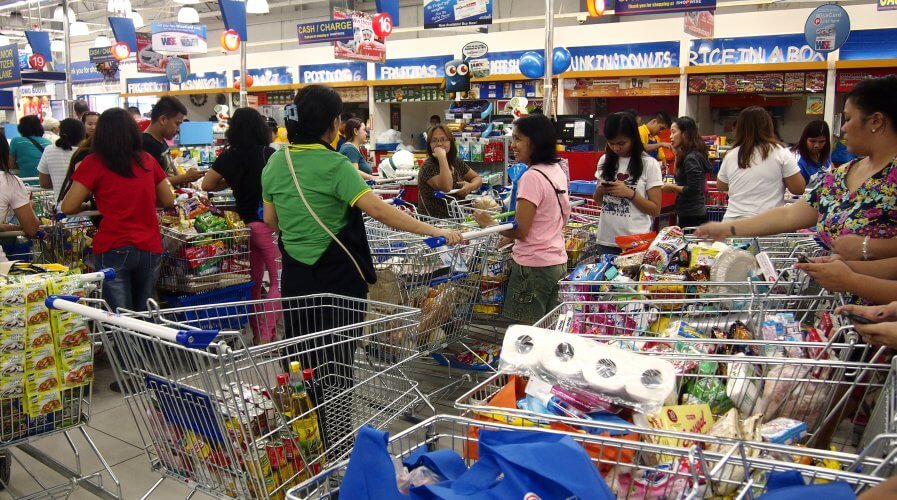
A Philippines’ start-up has developed is an in-store automated consumer behavior analytics system using CCTV footage. Source: Shutterstock.com
Can AI turn CCTV footage into valuable insights?
FIGURING out consumer behavior is crucial in just about any business, and a lot of resources are often spent just to measure them.
But even with all the data from market research and surveys, some shopping pattern or trend will still catch retailers off guard.wi
That is when businesses turn to tech companies to gain better insights.
Retailgate – a startup operating out of the Philippines – is one such tech comapny that uses artificial intelligence (AI), automation and analytics to provide retailers with strategic solutions that are data-driven.
Solutions based on data
One product that Retailgate has is an in-store automated consumer behavior analytics system.
Using the footage from the stores’ closed-circuit surveillance cameras, the software will analyze the effectiveness of promotional campaigns, workforce requirements, and most crucially, consumer shopping patterns.
“Our system allows for automating the data on traffic of consumers as actual headcount. We are giving beyond what the POS (point of sales) is able to capture,” Retailgates’ 23-year-old CEO, Raphael Layosa was quoted as saying by Entrepreneur PH.
Three parameters: Consumer volume, dwell, and conversion are measured by this system. Consumer volume is the number of customers, and dwell is how long they remain on the sales floor.
Conversion is the comparison of purchases made based on POS data and consumer volume.
Layosa pointed out that the system measures the length it takes for the consumer to make a purchase at different parts of the store.
“We are able to look at how it affects the propensity of consumers to make a purchase,” he added.
Another product that Layosa’s team has developed is a bit more focused and used for target marketing: It identifies the age and gender of those looking into the screen of a device, and advertisements and promotions can be customized for them.
While similar products are already in the market, Layosa claims they were developed by European companies and do not accurately capture the features of the Asian population.
How it all started
While interning for an alcoholic beverage producer, during his studies at the University of the Philippines’s College of Business Administration, Layosa was monitoring the sales of a product that was marketed mainly to men.
However, he found that at the grocery stores and supermarket, women were the ones that were mostly buying the beverages.
“We realized we were missing out on something. We’re not really seeing what was happening on the ground,” Layosa said.
Layosa realized there and then that properly analyzing shopping behavior data from the physical stores could strategically help businesses, specifically retailers.
After forming a viable business idea, he then set his sights on developing AI to generate insights from analyzing the massive amounts of surveillance footage.
With the help of his professor, he joined the Department of Science and Technology (DOST)-UP Diliman Enterprise Center for Technopreneurship, where he met Miguel Remolona, a Colombia University postgraduate in machine learning and management.
Together with another friend, DJ Salon, they developed the idea until it started gaining some traction. They were awarded a grant worth US$88,000 by the Philippine Council for Industry, Energy and Emerging Technology Research and Development (PCIEERD).
The grant provided them with a boost, expediting their product development and accuracy of their algorithm.
With economies becoming both increasingly globalized and digital, retailers are left with no choice but to harness the power of technology available around them.
And companies like Retailgate are there to help them do just that, assured.
READ MORE
- Ethical AI: The renewed importance of safeguarding data and customer privacy in Generative AI applications
- How Japan balances AI-driven opportunities with cybersecurity needs
- Deploying SASE: Benchmarking your approach
- Insurance everywhere all at once: the digital transformation of the APAC insurance industry
- Google parent Alphabet eyes HubSpot: A potential acquisition shaping the future of CRM






